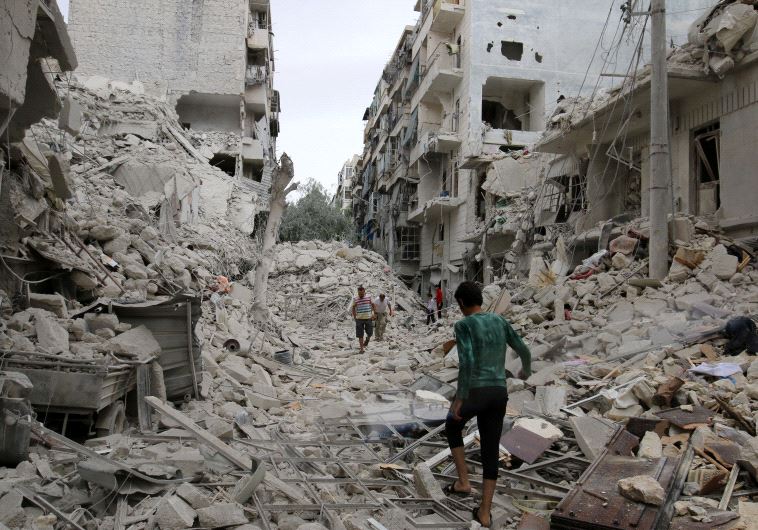Assad closes in on huge victory in Aleppo
The fall of Aleppo will be a huge blow to the rebels in a war that has taken the lives of more than 400,000 people.
 People inspect a damaged site after airstrikes on the rebel held Tariq al-Bab neighbourhood of Aleppo, Syria.
People inspect a damaged site after airstrikes on the rebel held Tariq al-Bab neighbourhood of Aleppo, Syria.